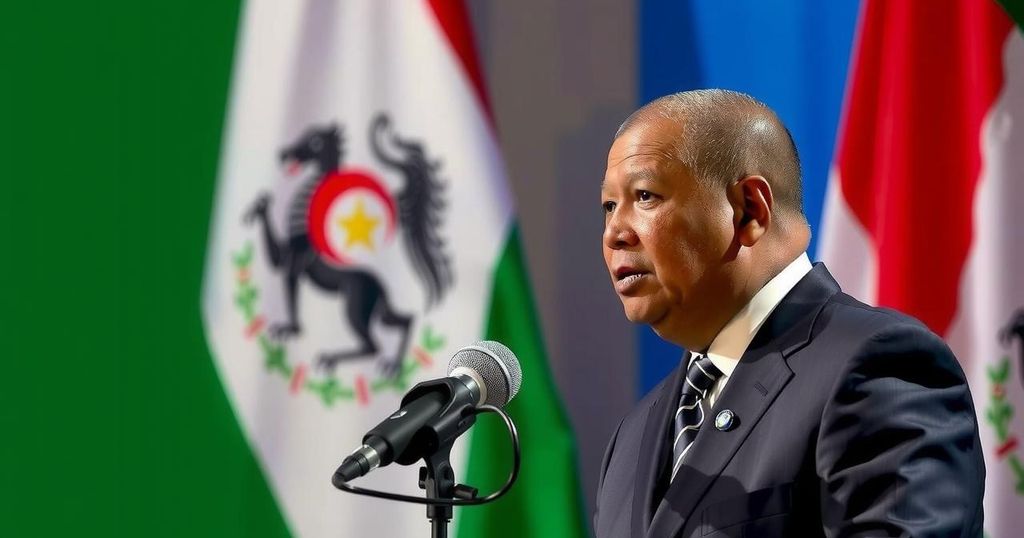Sudanese President Omar al-Bashir Cancels Indonesia Visit Amid Protests

Sudan’s President Omar al-Bashir has canceled his visit to Indonesia for the Asia-African Leaders Conference, citing the need to monitor post-election operations. This marks a significant moment as it was to be his first trip outside Africa or the Middle East in four years. His absence is welcomed by human rights groups advocating for his arrest due to war crimes charges from the International Criminal Court.
Sudanese President Omar Hassan al-Bashir has unexpectedly cancelled his trip to Indonesia, where he was scheduled to attend the Asia-African Leaders Conference in Jakarta. The last-minute decision, attributed to his commitment to oversee post-election operations in Sudan, marks a significant moment as it would have been his first official visit outside Africa or the Middle East in nearly four years. Sudan’s Foreign Ministry spokesman, Ali al-Sadiq, stated the leadership determined it was best for Bashir to remain in the country. Instead, Sudan’s Minister of Foreign Affairs will represent the nation at the summit.
The cancellation of President Bashir’s trip comes amidst ongoing protests from human rights organizations that have long sought his arrest. These groups are particularly concerned due to the International Criminal Court (ICC) having issued an arrest warrant for Bashir in 2009, charging him with war crimes and crimes against humanity related to the Darfur conflict. Although Indonesia is not a member of the ICC, the presence of Bashir was met with fierce opposition from rights advocates, who view his absence as a reinforcement of his status as a fugitive from international justice.
Over the past decade, President Bashir has largely confined his travels to non-ICC member states, primarily visiting Arab nations and African countries. His previous trip outside the region dates back to June 2011 when he traveled to China. Despite his somewhat restricted travel options, Bashir has consistently visited nations, including those that have neglected to arrest him, further complicating the international legal landscape regarding his alleged crimes. Human Rights Watch has noted that this latest development exemplifies his diminishing opportunities for international travel due to his fugitive status.
As Bashir’s planned attendance at the conference was met with resistance, the cancellation underscores the nuanced and often contested nature of international diplomacy and law in relation to leaders accused of serious crimes by human rights advocates. The international community remains watchful on how Sudan navigates its political landscape amid these tensions.
The cancellation of President Omar Hassan al-Bashir’s trip to Indonesia is laden with implications stemming from his designation as a fugitive from international justice. In 2009, the International Criminal Court issued an arrest warrant against him for war crimes and crimes against humanity in Sudan, particularly regarding the prolonged conflict in Darfur. Indonesia, though non-compliant with the ICC, sparked significant backlash from human rights organizations regarding Bashir’s potential visit given his charges. Bashir’s history of selective international travel, mainly to non-ICC states, adds layers to the discussion of legality, accountability, and diplomatic relations amidst allegations of severe human rights violations.
In conclusion, President Omar al-Bashir’s last-minute cancellation of his trip to Indonesia highlights the political and legal complexities surrounding his presidency and the international scrutiny he faces. The decision to remain in Sudan reflects both his current obligations as the nation’s leader and the sensitive nature of his international standing, particularly under an ICC arrest warrant. As rights groups celebrate this development, it serves as a reminder of the ongoing challenges in addressing accountability for leaders accused of grave human rights abuses.
Original Source: www.aljazeera.com








